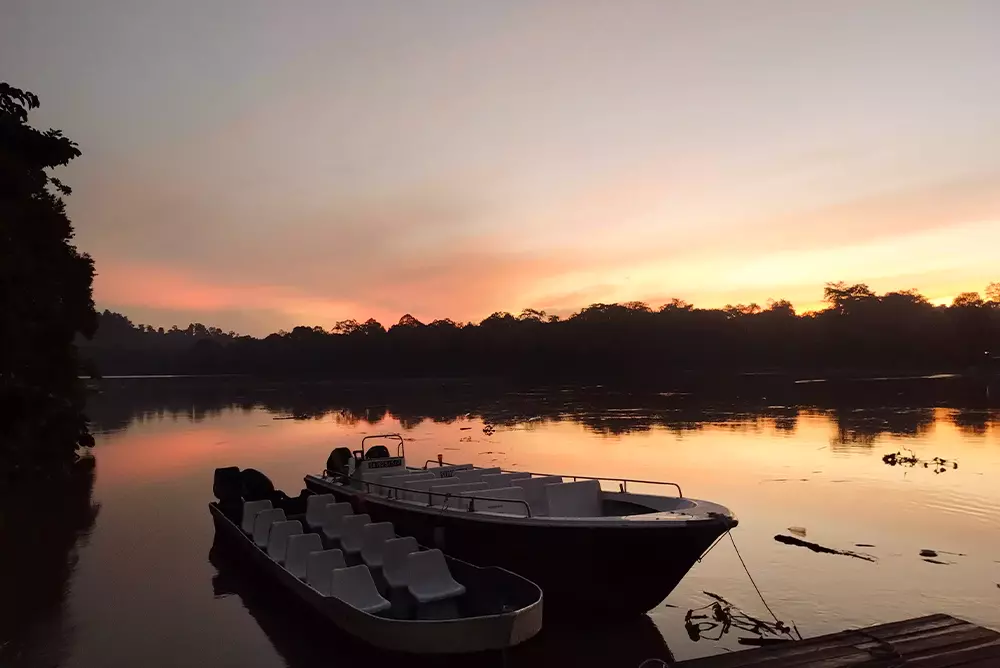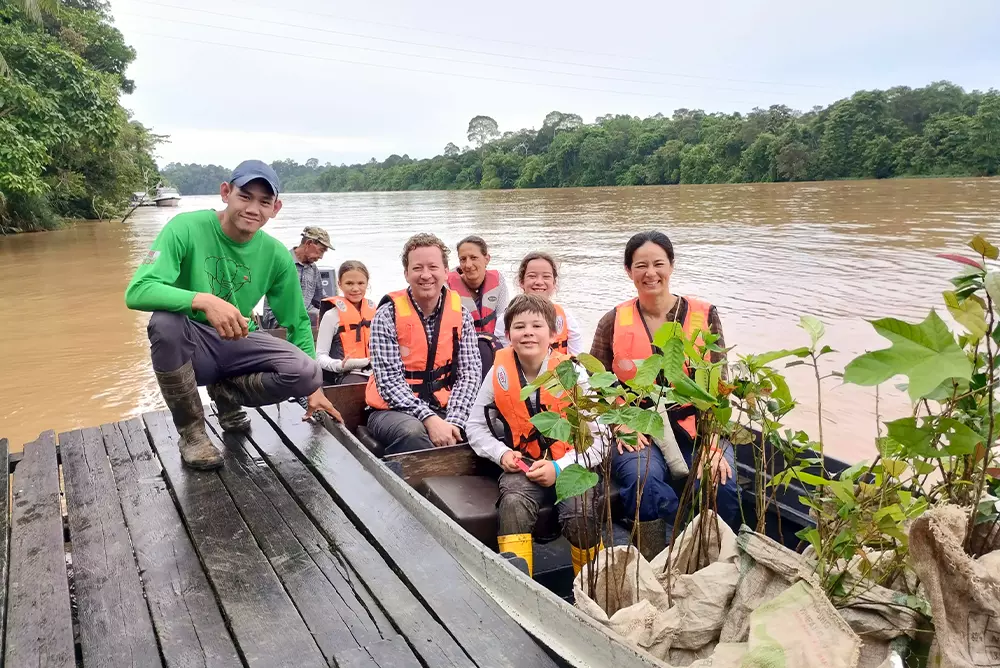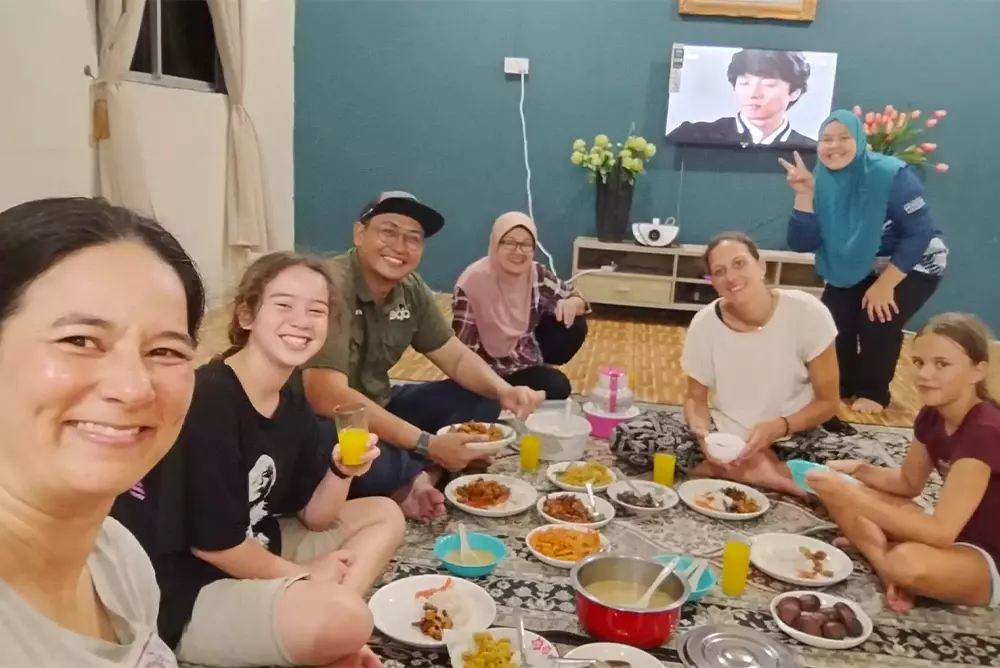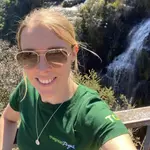

Family Volunteering in Borneo
Travel to Borneo, and see how you can aid orangutan conservation whilst meeting indigenous tribes-people on this exciting wildlife safari!
Speak To A Travel Expert
Activities
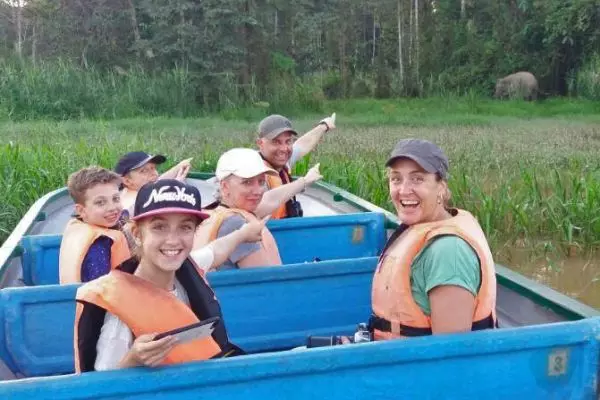
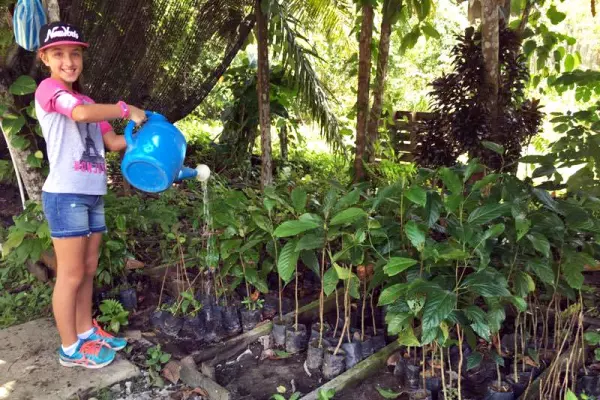
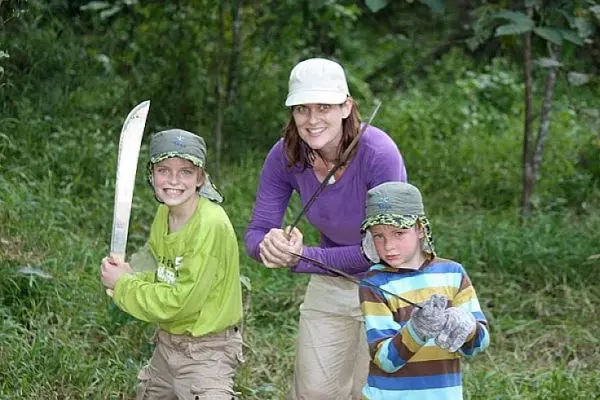
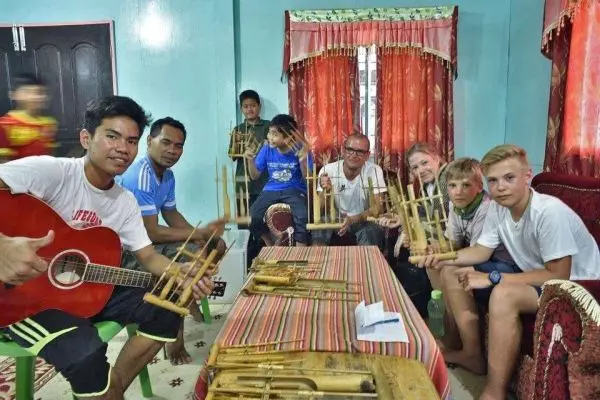
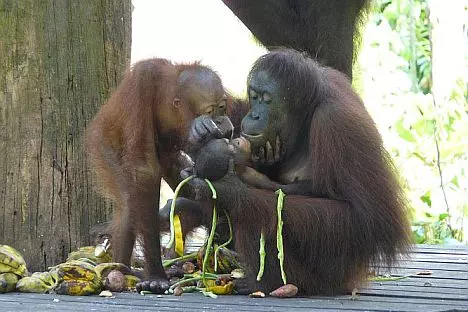
Itinerary
Please note itineraries are subject to change and what follows is simply a rough guideline.
Durations & Prices
Accommodation
Accommodation
During your time on this project, your family will stay in a range of accommodations across various styles and locations.
Sepilok: For your first night in the rainforest, you will stay in a traditional longhouse. Your room will be dormitory-style, with a number of bunk beds available. Depending on the size of your group, you may share the dorm room with another family. There are showers and western-style toilets available downstairs, which you will also share with the other families on this trip.
Sukau: During the project, you and your family will stay in a comfortable and authentically Bornean B&B located within walking distance of the centre of the village and the jetty - a wonderful opportunity for you to familiarise yourselves with a brand-new culture! Each bedroom can accommodate up to three people and also provides access to an en-suite bathroom. Please note that families of 3 or more may be split into 2 or more rooms depending on room structure and availability.
Sandakan: For your final night, you will stay in a comfortable room in the equivalent of a 3-star hotel in Sandakan town. Each private room can accommodate up to three people and comes with its own en-suite, complete with western toilets and hot-water showers.
Meals & Beverages
All meals and beverages are provided and are included in the price of the project, though breakfast is to be prepared by volunteers. Lunch and dinner are prepared by local villagers in their homes, presenting a great opportunity to hear about their daily lives, chat with the children, and to see how the community has been living for centuries! If you or your children have any dietary requirements, we kindly ask that you let us know in advance so that the correct meals can be prepared for you during your stay.
Project Details
When Is The Best Time To Volunteer?
There is no specific 'best' time to join this project, as wildlife is visible all year round.
The weather is also quite constant throughout, with temperatures averaging 29-33°C (84-91°F) in the daytime and 24°C (75°F) at night. Whilst it can rain all year round due to it being a rainforest climate, the rainy season is typically between November and February, making March to October a popular time to volunteer.
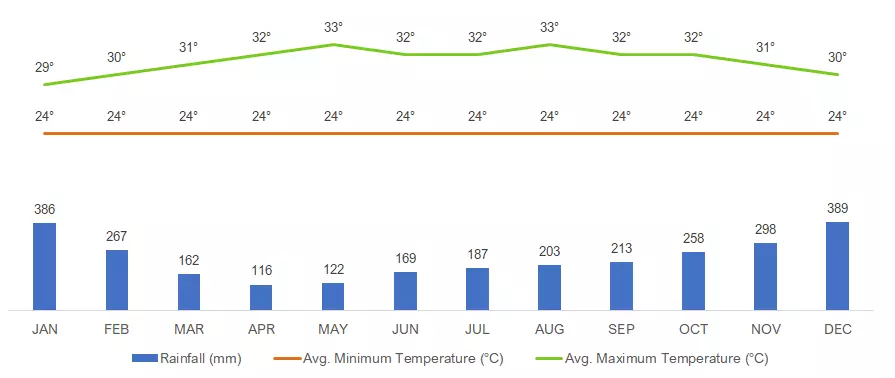
Getting There
You will need to arrive into Sandakan Airport between 7am and 4pm on the start date of your project. You will be met by a project representative in the arrivals hall and transferred by road to your first night's accommodation. This transfer will take around 45 minutes, and is included in your project fee.
Visa Requirements
There is no prior visa required for most nationalities to enter Malaysia as a 90-day tourist visa is granted on arrival. However, please check the Malaysian Immigration website for detailed information. Visas are of your own responsibility.
Fitness & Skills
While the work on this project is not necessarily difficult, there is an element of activity involved in reforestation. For this, you will need to kneel down in order to plant the saplings, and you must be able to work in a humid climate. Additionally, your family will embark on a trek which may cover tricky terrain. There are no specific skills required in order to join this project – all we ask is that you come with a willingness to learn and to get involved with conservation efforts!
Vaccinations
There are no specific vaccination or medical requirements needed to join this project and as such, the vaccinations you require will depend on your medical history. We, therefore, recommend that you consult your GP/Doctor regarding your own immunisation needs.
No Contact Policy
We are often asked whether or not volunteers will have the chance to touch or play with the orangutans whilst on this project. Our answer to this question is, and will always be no, and this is for good reason.
Orangutans are highly susceptible to human diseases and something as minor as the common cold can prove fatal to these great apes. An orangutan is also around 7 times stronger than an adult male human so a no-contact policy is just as crucial for your wellbeing as orangutan welfare.
That is not to say that as a volunteer you will have no interaction with the orangutans, it simply means that you will have no direct contact with them. You will still hope to observe them whilst in the Corridor of Life and see them at the Sepilok Orangutan Rehabilitation Centre. For more information please view our article on hands-on contact with orangutans here.
Gallery
Reviews
We really really loved that the organisation that ran the trip were passionate and genuinely invested not only in conservation efforts but also involving and educating the local communities so they were also invested in protecting the environs. This included encouraging locals to collect seeds from the jungle and grow saplings in home nurseries that were then purchased to plant, involving local boat captains, planters and gardeners and families to "host" us for lunch and dinner. The lunches and dinners that we had in the "Aunties" homes was the other absolute highlight of our trip - the food was delicious and plentiful, the kids loved learning to eat with their hands in local tradition and our vegetarianism was catered for beautifully. We were lucky enough to glimpse all of Borneo's Big 5 (Hornbills, Crocodiles, Proboscis Monkeys, Orangutans and one Bull Elephant that actually came past our planting site!) which is rare and was very special. I could not recommend this trip enough to people (though would suggest children aged 11+ will get the most out of it as there are some long boat trips and the work was quite hard! Thanks so much! P.S. we also appreciated the huge amount... We really really loved that the organisation that ran the trip were passionate and genuinely invested not only in conservation efforts but also involving and educating the local communities so they were also invested in protecting the environs. This included encouraging locals to collect seeds from the jungle and grow saplings in home nurseries that were then purchased to plant, involving local boat captains, planters and gardeners and families to "host" us for lunch and dinner. The lunches and dinners that we had in the "Aunties" homes was the other absolute highlight of our trip - the food was delicious and plentiful, the kids loved learning to eat with their hands in local tradition and our vegetarianism was catered for beautifully. We were lucky enough to glimpse all of Borneo's Big 5 (Hornbills, Crocodiles, Proboscis Monkeys, Orangutans and one Bull Elephant that actually came past our planting site!) which is rare and was very special. I could not recommend this trip enough to people (though would suggest children aged 11+ will get the most out of it as there are some long boat trips and the work was quite hard! Thanks so much! P.S. we also appreciated the huge amount of flexibility that was granted us to extend our trip date year after year due to COVID - so glad our 2020 trip finally happened! (Show More)
Seeing the monkeys - so many - amazing
Overall a good experience and my daughter loved it. Sukau was a very sleepy village and there was a little too much free time. With more notice I could have arranged my own boat trip or excursion during that time.
What's Included
- Accommodation
- Three meals per day
- All transfers
- Full orientation and support from your project facilitator
- Entrance fees to the Sepilok Orangutan Rehabilitation Centre and the Rainforest Discovery Centre
- A donation to the project
What's Not Included
- Flights
- Visas
- Travel insurance



















